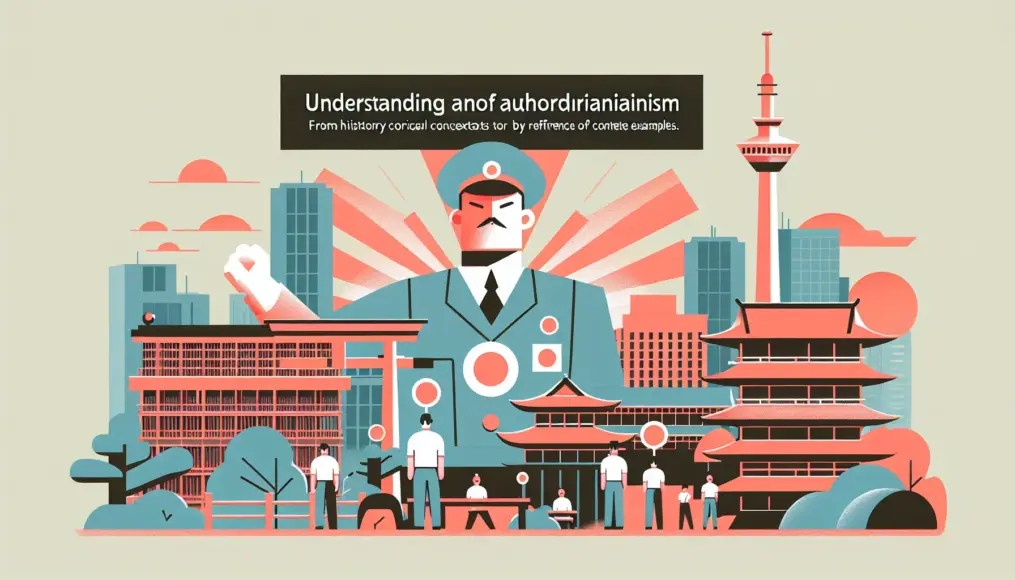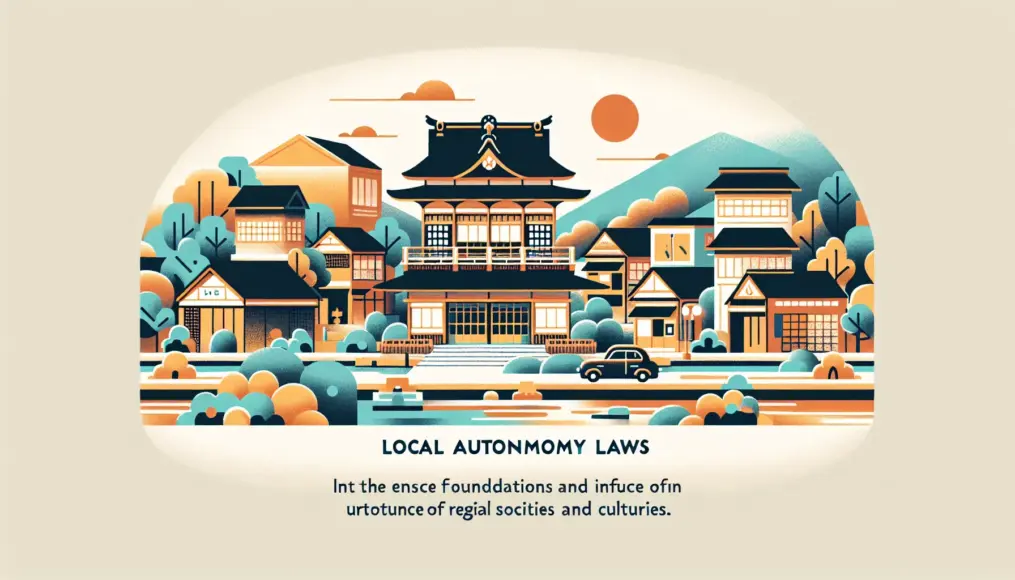Have you ever heard the term “authoritarianism”? This concept has had a significant impact on the political and social landscape throughout history. Looking back, authoritarianism has existed since ancient times and has evolved over the centuries. Its effects are still palpable in today’s society, influencing our lives and ways of thinking.
In this article, we will explore the historical background of authoritarianism and its functions in the modern world. We will also examine the impact it has on individuals and consider its potential future implications. Through this exploration, we aim to deepen our understanding of how authoritarianism shapes our society.
- We will explain the origins and historical development of authoritarianism
- We will analyze the functions and effects of authoritarianism in contemporary society
- We will clarify the influence of authoritarianism on individuals and society as a whole
The Historical Context of Authoritarianism
Authoritarianism has played a crucial role in shaping societies and political systems from ancient times to the present day. In this chapter, we will reflect on the historical development of authoritarianism, exploring how authoritarian ideas and regimes have taken shape over the centuries. We will pay particular attention to the evolution of authoritarianism from ancient to medieval times and into the modern era, considering the contexts and influences that have contributed to its persistence.
Authoritarianism from Ancient to Medieval Times
In ancient societies, it was common for rulers such as kings and nobles to hold absolute power. People were expected to live in accordance with the will of the gods or fate, and defying the ruler’s wishes was not tolerated. As we moved into the medieval period, religion began to influence authoritarian regimes significantly. The intertwining of church and state led to an increased concentration of power. Thus, from ancient times through the medieval era, authoritarianism became deeply embedded in the lives of people.
- Ancient societies featured rulers with absolute authority.
- In the medieval period, the fusion of religion and politics concentrated power.
- Authoritarianism has profoundly impacted people’s lives.
The Rise of Authoritarianism in the Modern Era
With the advent of modernity, particularly due to the Industrial Revolution and societal changes, authoritarian regimes faced new developments. The strengthening of the state and the formation of nation-states fueled an even greater concentration of power. Additionally, certain ideologies began to be used as justifications for authoritarianism. During this period, while authoritarianism sought political stability, it often came at the cost of personal freedoms and rights.
For those interested in this topic, we recommend reading our article on “Philosophical Considerations of Authoritarian Regimes and Their Impact.” This piece delves into the characteristics of authoritarian regimes, their historical contexts, and their implications for contemporary society, providing valuable insights to deepen your understanding of authoritarianism.
- The Industrial Revolution marked a new chapter for authoritarianism.
- The strengthening of states and formation of nation-states progressed.
- Authoritarianism pursued political stability while restricting freedoms.
The Role of Authoritarianism in Modern Society
In today’s world, authoritarianism manifests in various ways, often serving as a tool for pursuing political stability. Authoritarian regimes can enhance the efficiency of governance and maintain social order. However, this often comes at the cost of individual freedoms and rights, leading to complex consequences. In this section, we will explore how modern authoritarianism operates and its impact on our lives.
The Pursuit of Political Stability
Authoritarian regimes place a strong emphasis on political stability. Especially during times of social unrest, concentrating power allows for swift decision-making, which is seen as a way to restore order. While such regimes may facilitate the smooth implementation of policies, they often suppress the voices of those with differing opinions. As a result, while political stability may be achieved, there is a significant risk of democratic processes being undermined.
- Authoritarianism prioritizes political stability.
- Concentrating power enables rapid decision-making.
- The suppression of dissenting opinions raises concerns about the regression of democratic processes.
Impact on Economic Development
Authoritarian regimes also influence economic development. Strong state intervention can lead to advancements in infrastructure and the nurturing of industries. This is particularly evident in developing countries, where authoritarianism may sometimes drive economic growth. However, in the long run, the lack of free market principles can stifle innovation and competition, making it crucial to strike a balance.
- Authoritarianism affects economic development.
- Strong state intervention can facilitate infrastructure improvement.
- It’s important to maintain balance, as long-term effects may hinder free market dynamics.
The Impact of Authoritarianism on Individuals
Authoritarian regimes significantly affect personal freedoms and rights. When power becomes concentrated, the voices and opinions of ordinary citizens are often ignored, potentially leading to a loss of dynamism within society as a whole. In this section, we will explore how authoritarianism impacts individuals, focusing particularly on the restrictions of freedom and rights, as well as the psychological effects.
Restrictions on Freedom and Rights
Under authoritarian regimes, individual freedoms and rights are frequently curtailed. With the government wielding strong power, it is common for freedoms of speech and assembly to be suppressed. In such environments, people find it increasingly difficult to express their opinions, and a pervasive atmosphere of fear can emerge. Consequently, this stifles personal self-expression and contributes to a decline in the overall vibrancy of society.
- Authoritarian regimes restrict freedoms and rights
- Suppression of freedoms of speech and assembly is common
- An atmosphere of fear emerges, hindering self-expression
Psychological Effects
The influence of authoritarianism extends to individual psychology as well. The increasing fear and anxiety regarding authority can lead to diminished self-esteem and a rise in stress and anxiety disorders. Additionally, relationships with those around individuals may weaken, leading to a heightened sense of isolation. Thus, authoritarianism can have serious implications for personal mental health.
- Authoritarianism also affects individual psychology
- Heightened fear and anxiety can lower self-esteem
- Increasing isolation can negatively impact mental health
The Future of Authoritarianism and Its Possibilities
Authoritarianism is facing new challenges and changes in today’s society. As globalization accelerates, there is growing interest in how authoritarian regimes will evolve and how their relationship with democracy will transform. Let’s explore how authoritarianism might develop in the coming years and how it could impact our lives.
Globalization and Authoritarianism
Globalization promotes the flow of information, capital, and people, strengthening interdependence across borders. In this environment, authoritarian regimes are encountering new challenges. While external influences may increase, there are also times when authoritarianism is reinforced in an effort to protect national identity. Such dynamics can hinder international cooperation.
- Globalization increases interdependence among nations
- Authoritarian regimes are facing new challenges
- Authoritarianism may be strengthened to preserve national identity
Impact on Democracy
The future of authoritarianism will significantly affect democracy as well. When authoritarian regimes strengthen their hold, democratic processes often regress, leading to the marginalization of public opinion. This can undermine the values of democracy and deepen societal divides. However, the shortcomings of authoritarianism may also shine a light on the necessity of democratic governance, prompting a renewed appreciation for democracy.
As we contemplate the relationship between authoritarianism and democracy, it’s also intriguing to consider how other political systems impact society. In particular, the article “Exploring the Cultural Impact of Socialism and Democracy” delves into how these political ideologies influence culture, so be sure to check it out.
- The strengthening of authoritarianism leads to a regression of democratic processes
- Public opinion is often disregarded
- The problems of authoritarianism may highlight the need for democracy
Summary
Authoritarianism is a significant theme, both historically and in contemporary society. From ancient times through the medieval period and into modernity, authoritarianism has evolved in various forms, serving as a means for political stability and economic development today. However, we must not overlook its impact on individual freedoms and rights, as well as the psychological effects it can entail. Additionally, we need to consider the implications of globalization and its influence on democracy.
Given these perspectives, reflecting on the future of authoritarianism is crucial. By understanding how authoritarianism evolves and what effects it has on our society, we can better aid in creating a more favorable future.
- Authoritarianism has developed in various forms throughout history.
- Contemporary authoritarianism contributes to political stability and economic growth, but it also restricts freedoms and rights.
- Considering the impacts of globalization and democracy is vital.
By deepening our understanding of authoritarianism, we can think about what steps we can take to improve our society. If you have thoughts or opinions on this article, please feel free to share them in the comments!



Comment